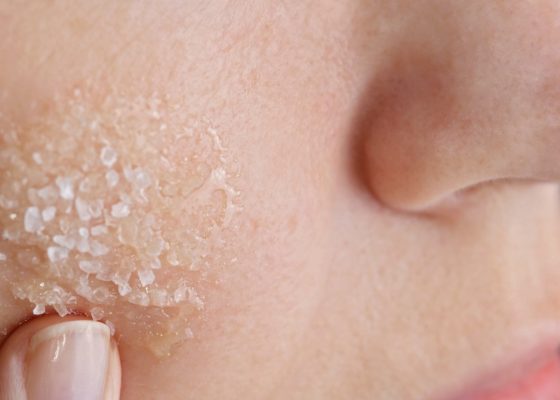The reported benefits of the Mediterranean diet have been linked to the common skin disorder for the first time.
A small randomised study has shown following the Mediterranean diet for a short period of time delivers greater psoriasis relief than a standard low-fat diet.
Many treatment approaches for psoriasis focus on reducing the levels of pro-inflammatory cytokines.
The Mediterranean diet – where the consumption of extra virgin olive oil, vegetables, nuts and whole grains are prioritised over fish, meats and dairy – has been reported to have anti-inflammatory properties. But the effects of a Mediterranean diet on psoriasis have only ever been explored in observational studies.
Now, a team of Spanish researchers have undertaken what they claim to be the first randomised trial of the Mediterranean diet for psoriasis, which they refer to as the MEDIPSO trial.
Their findings, published in JAMA Dermatology, suggest that patients who followed the diet for 16 weeks had a larger reduction in the Psoriasis Area and Severity Index compared with patients who followed a standard low-fat diet.
Thirty-seven patients with mild to moderate psoriasis (defined by a of 2-10) completed the 16-week intervention; 19 of whom were randomised to follow the Mediterranean diet while the remaining 18 patients received standard advice about following a low-fat diet. Patients were able to continue topical psoriasis treatments throughout the course of the study, although the use of systemic therapies were not allowed.
Patients who received the Mediterranean diet displayed a greater reduction in the study’s primary outcome – the change in PASI from baseline to week 16 – compared to patients in the control arm (estimated marginal means change -3.4 versus 0).
In addition, a greater proportion of patients in the intervention group achieved a 50% (68% versus 1%), 75% (47% versus 0%) and 90% (26% versus 0%) reduction in PASI from baseline, compared to patients in the control group. Better adherence to the Mediterranean diet was also associated with a larger improvement in PASI, even after controlling for the effects of age, sex and BMI.
After 16 weeks there were also greater improvements in quality of life (difference in EMM change of -3.1 on the Dermatology Quality of Life Index, where scores range from 0-30 and higher scores indicate greater impairment), insomnia (-2.5 on the Insomnia Severity Index, where scores range from 0-28 and higher scores indicate more severe insomnia) and anxiety symptoms (-2.8 on the Hospital Anxiety and Depression Scale, where scores range from 0-42 and higher scores indicate greater symptom severity) in patients who followed the Mediterranean diet compared to patients who followed the standard low-fat diet.
There were no differences between groups with respect to depressive symptoms (also measured by the HADS).
“Notably, the improvements in this study occurred without significant weight loss, suggesting that the attained beneficial effect was independent of bodyweight changes,” said the researchers, who also noted that no intervention-related adverse events occurred over the course of the study.
“Additionally, patients in the intervention group showed greater treatment deintensification, while participants in the control group maintained stable topical regimens. Therefore, the psoriasis improvement cannot be explained by increased use of topical therapy.”
The researchers suggested that the Mediterranean diet’s beneficial effects on psoriasis could be explained through several different pathways relating to chronic inflammation.
“It has been shown to reduce systemic inflammation and oxidative stress, largely due to its high content of antioxidant vitamins (e.g., β-carotene, vitamins C and E), polyphenols, and phytochemicals that attenuate lipoprotein oxidation and lower proinflammatory markers,” they said.
“Additional mechanisms include cyclooxygenase inhibition by oleocanthal found in olive oil and the inhibition of proinflammatory eicosanoids by omega-3 fatty acids present in oily fish.
“The Mediterranean diet also improves lipid profiles, enhances insulin sensitivity and modulates hormonal and growth factor signalling involved in immune activation and keratinocyte proliferation. Furthermore, long-term adherence has been associated with favourable modulation of gut microbiota, particularly increasing short-chain fatty acid–producing species with anti-inflammatory and immunoregulatory effects.”
The MEDIPSO trial did have significant limitations that needed to be considered, namely its small sample size, short follow-up period and open-label design. However, the researchers feel these results are an important step in improving the understanding of how dietary modifications can assist in psoriasis management.
“The findings of this study support the incorporation of structured nutritional interventions as part of comprehensive psoriasis management,” they concluded.
“A Mediterranean diet is not only culturally acceptable and sustainable but may also offer added cardiometabolic benefits in a population at increased risk of cardiovascular disease.
“Future multicentre trials with larger samples and longer follow-up are warranted to validate these findings and better define the long-term role of dietary interventions in psoriasis.”





